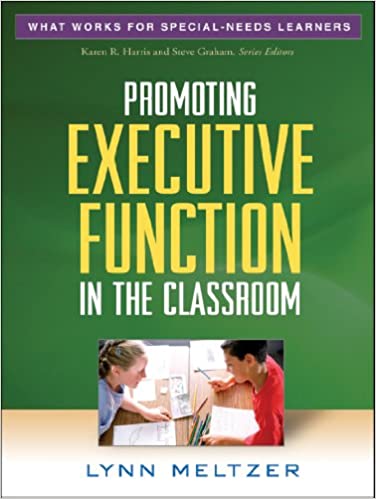4 Ways Classroom Design Impacts Executive Functioning
 Good classroom design supports the acquisition of not only content skills but process skills. Executive functions are process skills that allow us to successfully complete tasks.
Good classroom design supports the acquisition of not only content skills but process skills. Executive functions are process skills that allow us to successfully complete tasks.
In any given classroom, there will be a wide range of students with a variety of executive functioning skill levels. These skills include working memory, task initiation, organization, metacognition, inhibition, planning and prioritizing, time management, emotional control, sustained attention, flexibility, and goal-directed persistence.
Executive functions develop biologically but also through experience. Students need to practice executive functioning skills just like they need to practice phonetic skills, math facts, and reading comprehension skills. Therefore, teachers have a responsibility and, more important, an opportunity, to cultivate these skills. The design of the classroom is one way to support these skills.
How Classroom Design Impacts Executive Functioning
1. Working memory. Working memory is one’s ability to hold information in order to complete a task. It’s been described as a “sticky note” to help students complete their work. Good classroom design supports working memory by limiting teacher language and verbal directions. When the design of the classroom tells students what to do, it frees up working memory for learning content rather than procedure. The design creates routine and transparency for the students.
Classroom teachers should create visuals to support their daily routine, which will limit teacher directions. These visuals could include anchor charts that outline the procedure of the daily routines, checklists, or visual cues to help with classroom organization.
2. Organization. The design of the classroom should help students organize their bodies, their materials, and, most important, their thinking. There need to be clear systems in place. For example, your classroom meeting area needs to have enough room for each student.
To help organize materials, homework should be dropped off in the same place each morning. Teachers need to be consistent so that students internalize the systems.
A well-designed classroom models for students how organization helps accomplish tasks. We realize that when teachers model structures, students can start to generalize and implement these structures with their own work and thinking. An outsider should be able to walk into a classroom and understand most of these systems.
3. Task initiation. Task initiation is one’s ability to start a task independently. The setup of your classroom should prompt students and help them prioritize the steps of a routine.
For example, if supplies are clearly marked and accessible, students can initiate their work independently. It’s important that the materials do not distract students. When too many materials are available, students have difficulty assessing what is necessary and can become focused on the materials rather than the task.
4. Inhibition. Inhibition is one’s ability to self-monitor one’s own behavior. When design is clear and simple, students won’t be as easily distracted and can better regulate their own behavior. Color can be a good tool to organize information, but when color does not have a purpose and instead is used to decorate, it can confuse students. For example, alternating two colors when listing steps can help; however, rainbow information can hinder production.
Design should not be stagnant. Your students’ work and product should help you decide if your classroom is working. Teachers spend time creating their classrooms prior to student arrival, but often the design that works in September is not the design that works in January or in May. It’s important to continually reassess your design choices.
Excerpted from “4 Ways Classroom Design Impacts Executive Functioning” in Edutopia. Read the full post online for additional details.
Source: Edutopia | 4 Ways Classroom Design Impacts Executive Functioning, https://www.edutopia.org/article/4-ways-classroom-design-impacts-executive-functioning | © 2022 George Lucas Educational Foundation
To schedule an evaluation or to get advice, call or email a CHC Care Coordinator at 650.688.3625 or careteam@chconline.org CHC teletherapy services are available now.





